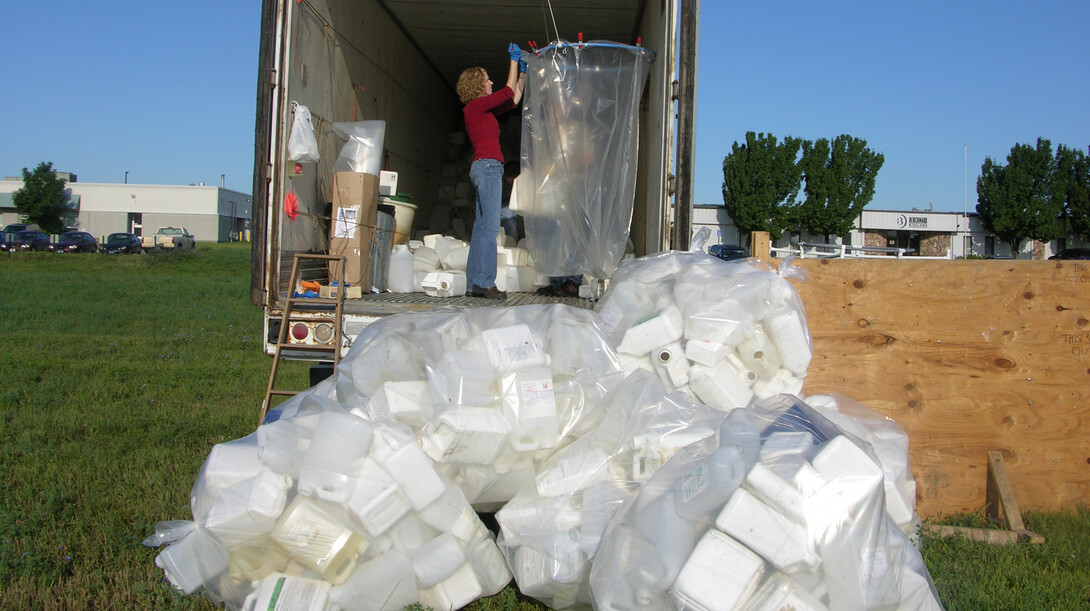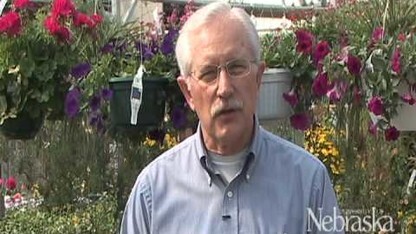
More than 1,000 tons of plastic pesticide containers have been recycled as part of a more than 20-year UNL Extension program aimed at turning these potential threats to Nebraska’s environment and landscape into useful products.
“In 2013, the program recycled about 35 tons of containers, adding to a running 22-year total of about 2.2 million pounds of plastic pesticide containers in Nebraska…which is well over 1,000 tons,” said Clyde Ogg, UNL Extension pesticide safety educator. “We’re going to keep adding on to that total as this very successful and collaborative program starts year 23.”
The Pesticide Container Recycling Program recycles 1- and 2.5-gallon plastic pesticide containers and 15-, 30- and 55-gallon plastic crop protection chemical drums.
“These are farm and ranch pesticide containers that could otherwise end up stored and forgotten in barns or sheds or be improperly disposed of by casting them aside on creek banks or by burning them,” Ogg said. “The program’s ethos has always been to provide a cost-effective, cooperative, and environmentally responsible way to properly dispose of and reuse these containers.”
Plastic from the collected containers is turned into industrial and consumer products like shipping pallets, drain tile, dimension lumber and parking lot tire bumpers.
Details of recycling sites and program guidelines are online at http://pested.unl.edu/recycling.
“Teamwork and cooperation has kept this program viable and successful over many, many years,” Ogg said, citing cooperation from UNL Extension educators and collection site managers statewide. “The commitment of the people that increasingly understand that this program is a simple and effective way to care for our environment is incredibly valuable. Most of the container collection sites are at agricultural chemical dealerships or community recycling centers, which volunteer to take on this additional responsibility.”
The program accepts pressure-rinsed or triple-rinsed 1- and 2.5-gallon plastic pesticide containers. They must be clean and drained, inside and out. Caps, labels, booklets and slipcover plastic labels, which can’t be recycled as part of the program, must be removed. Those items should be disposed of as normal, solid waste. Glued-on paper labels can be left on the container. Rinsate should be returned to spray tanks.
Of the 32 sites involved in the program, 18 accept 15-, 30- and 55-gallon plastic crop protection chemical, crop oil and adjuvant drums.
Drums must be thoroughly rinsed before delivery to collection sites and should not be cut or opened in any way. Mini-bulk, saddle tanks and nurse tanks, which can be made of fiberglass or plastics not compatible with the recycling program, are not accepted.
Eight sites collect year-around, 11 collect May through August, eight collect on specific dates, and four are by appointment only.
Program funding is by a national coalition of agri-chemical manufacturers through the Agricultural Container Recycling Council, Lexington, Va.
Click here for a complete list of collection sites.









